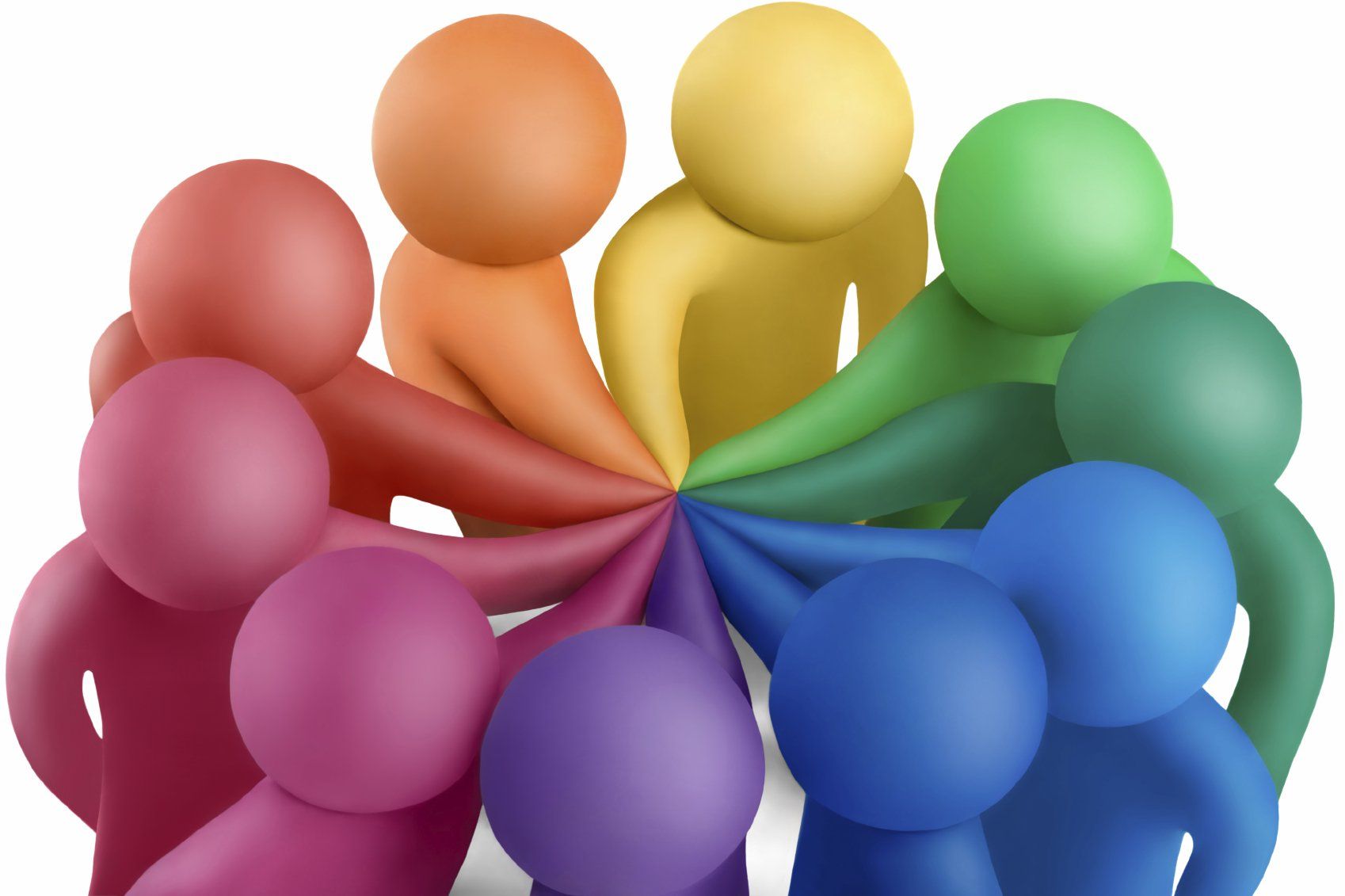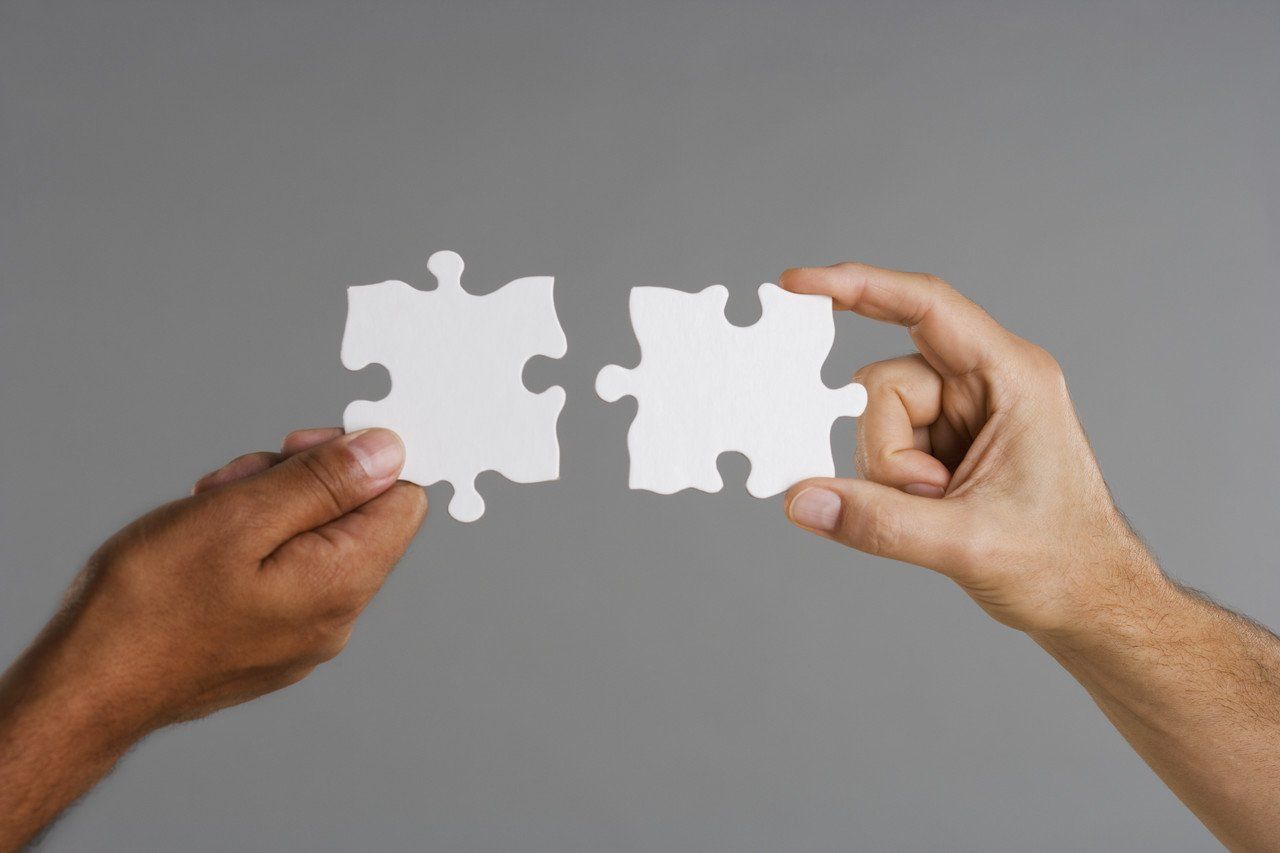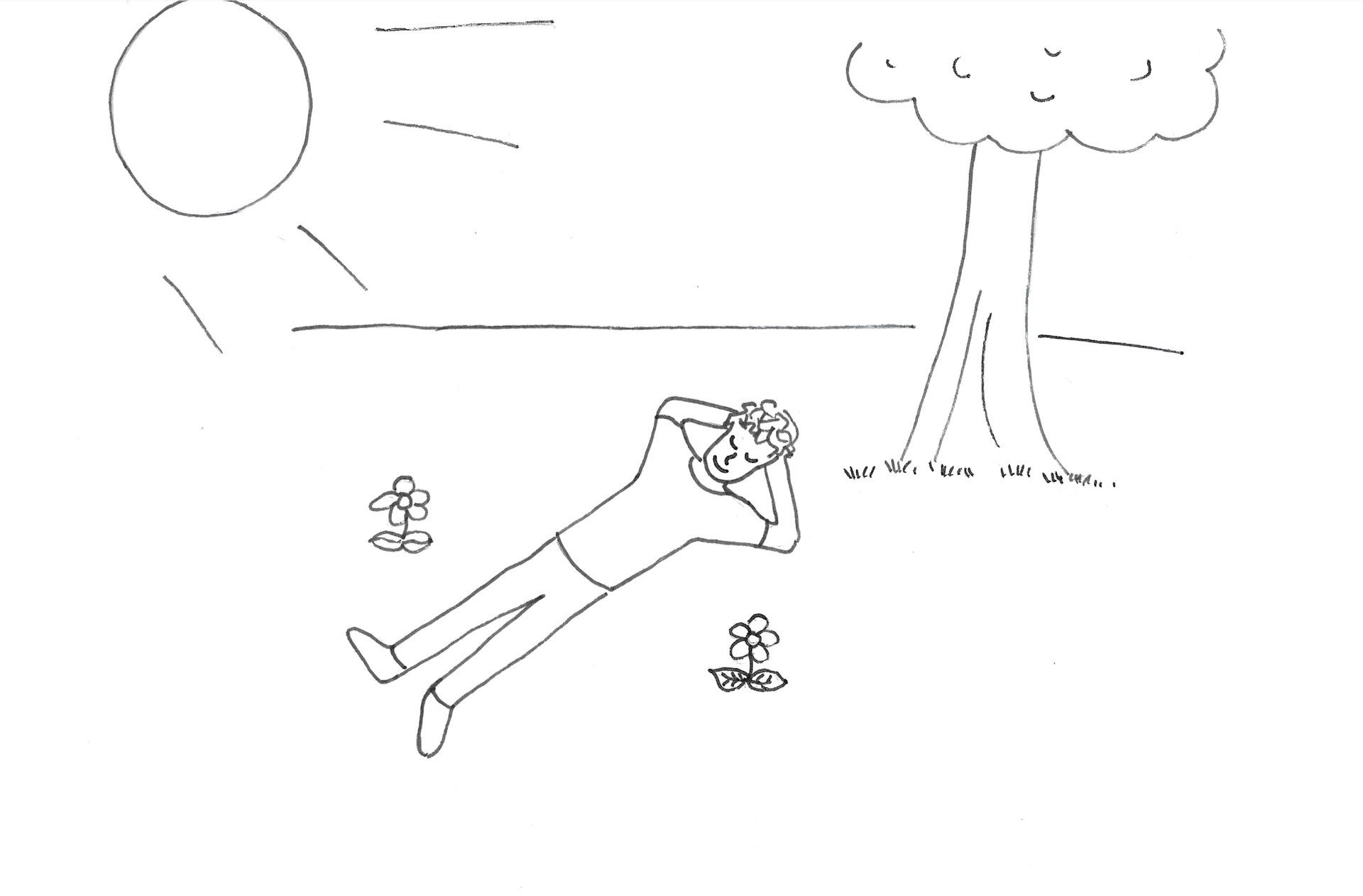When I was a child, how did I know I was Black?
Angie Bamgbose • 10 February 2021
This post was inspired by a white colleague who asked me, “When you were a child how did you know that you’re Black?” She asked this as we were grappling with our responses to the #BLM movement and following the murder of George Floyd in May 2020. It has taken me eight months to be ready to share how I know that I am Black.
- At my first school Christmas fare, I was excited to choose a toy from the lucky dip. As I wiggled my fingers in the sawdust the kind grown-up supervising the stall told me not to pull out a toy as she had something special for me. She gave me a hair bobble. I was 4 years old; I liked the hair bobbles. I was sad not to have chosen my own toy. I felt special and I felt different.
- The Christmas fare had followed a term of hair touching, pulling, stroking, of being called “wire wool”, “woolly head” and being asked “Are you brown all over? Even your bum?” which was always followed by squeals of laughter.
- On Brownie camp, we shared baths in large buckets and my fellow campers were delighted to be able to confirm that, indeed, my bum was brown. I was 7 years old.
- Aged 8, I went to middle school. On the first day I trooped into the classroom, found my name on a table next to Melissa (not her real name). She was the only other Black girl in the school and the only other Black girl I’d met (apart from my sister). We viewed each other with suspicion.
- In the same year, Bony M’s song ‘Brown girl in the ring’ resulted in almost the entire playground forming a circle around me, singing, ‘Brown girl in the ring, Tra la la la la, She looks like a sugar in a plum, plum-plum’.
- Nigger, coon and monkey chants were now normal. I was told to “Go home”. This was confusing, I lived in the town but I had been born in London. The more observant called me “Half caste”. My mum was called “Nigger-lover”. Graffiti on walls and bus stops confirmed I was not wanted.
- One birthday in mid-childhood, my mum’s friend sent me a birthday card. The picture on the card was a pencil drawing of a cute Black girl. I have never before, or since, had a birthday card picturing someone who looked like me.
- Around aged 10, I became aware that there were six of us Black children in town and we all had white parents. Two brothers were adopted, two siblings were fostered and there was no ‘evidence’ of my mum having been pregnant so I thought I must have been adopted too.
- With three Black girls in town, Melissa, my sister and I stood out! My grandad had been a well-loved GP and I was frequently stopped in the street to be asked if I was Dr Churchill’s granddaughter; they had a two in three chance of being right.
- I have worked since I was 13 years old. I had a Saturday job in a hairdressers’ salon, and I loved it. It meant my hair would no longer be trimmed into shape like a hedge. Perm lotion was combed through my hair to make it silky smooth and Black and White wax kept it oiled. I binned the afro comb which had been sent from London by my mum’s friend (the one sent me the card). I felt grown up being with older women and nodded as they told me that they liked me, “You’re not really like other Black people” (what the other five Black children in town?) “You’re only half-black. I don’t mean to be funny, but I would never have a Black boyfriend”. I nodded because ‘you’re only half Black, you’re as Black as you are white’ reinforced a message given at home. Did that mean that the comments hurt only half as much?
- My friends started to have boyfriends. No one was interested in me, was I too brown? Was my hair too curly? Did the 1980s ‘Peach shimmer’ lipstick and eye liner not do my brown skin justice? Or, did the boys just not mean to be funny but they would never have a Black girlfriend.
- My brown skin and curly hair did allow me to skip physics lessons and instead run up and down the athletics track. No one else could, but Black people were good at sport, so I was allowed to. I got a D in my physics GCSE.
- I left home aged 17 years and went to London; I haven’t lived in that town again. It’s not home. I don’t talk to my family about race or racism. I have survived, thrived, I am happy, I am proud and I am whole.

When George Floyd was murdered on 25th May 2020, I was defined as ‘extremely clinically vulnerable’ and was ‘shielding’ away from the world, my work as a consultant in low and middle income countries felt uncertain and I was horrified at how so many people watched George Floyd’s life be taken from him as if it was a form of entertainment. And then, the uprising began. It was as if the world was awaking, stretching, yawning and opening their eyes to the truth that not all lives matter until Black lives’ matter. At the same time, I had just joined an Interesting Women Action Learning Set, facilitated by Janice McNamara an alumnus of Action Learning Associates . I used my opportunity as a presenter to reflect on who I would be in a post-Covid world and the interconnectedness of changed work and personal identities. Gecas (1982) argues that “Identity refers to the various meanings attached to oneself by self and others” (Ibarra and Petriglieri 2010: 11) based on social roles, group memberships, personal traits and conduct. My identity, my social roles, group memberships, traits and conduct as a Strong Black Woman had been dented by the government-imposed ‘extremely clinically vulnerable’ label and the rising Black Lives Matter movement made me restless. I was involved in establishing a BLM task group within a consultancy group I am part of. I had given a personal testimony in another workplace and saw that whilst there was a desire to learn and do the right thing, there was also a squeamishness about talking frankly about race. In July 2020, I joined Action Learning Associates’ Virtual Action Learning Set Facilitator Course. I had just completed my MSc in Coaching and Mentoring, was doing an increasing amount of online facilitation. I had enjoyed being an Action Learning Set (ALS) participant so thought this could be my lock-down project and a key to different work opportunities. As the training progressed, I began to see the potential for ALSs as a safe space to hold frank conversations about race which provide a structure to move beyond talking about race to making commitments to act towards a more racially just world. Between October 2020 and January 2021 I ran a series of 6 ALSs on Race, Power and Privilege for child protection and safeguarding consultants to see if ALSs could indeed contribute to changes in ways of working which shift power towards increased racial equity. These sessions contributed to my Reflective Learning Log and ILM accreditation achieved through Action Learning Associates. The ALS was well received. Each set member identified personal and professional opportunities to do something which contributes to increased racial justice. A formal follow-up session was held to reflect on the ALS process and celebrate the progress each person was making. The group has evolved to a self-sustaining group to share resources, ask questions, share challenges and honour the changes being made. At the end of the ALSs Corinne Davey, Director GCPS Consulting, provided this feedback: "Angie’s facilitation of the ALS really created the space for us as individuals and as a set to move our thinking and action forward. The ALS process helped us examine what we thought we could do and pushed us to consider what we perhaps thought we couldn’t do! I found it one of the most transformative processes I’ve been through and within a safe space that feels supportive as well as providing the necessary challenge to help us make change." The word transformative jumped out at me and I remembered Mezirow’s ten phases of transformative learning (2009) (see image). In looking again at Mezirow’s (2009) transformative learning theory I began to see potential answers to the efficacy of the ALSs. Mezirow describes ‘transformative learning’ as the transformation of problematic frames of reference making them more open to change and generating new and helpful beliefs and opinions. Transformative learning changes the whole individual (or identity) through critical self-reflection and participation in discourse to evaluate underlying problematic beliefs which create new insights, understandings and actions. I believe the Race, Power and Privilege Action Learning Sets provide opportunities for transformative learning: Disorientating dilemma The death of George Floyd, the acknowledgement of personal and structural racism (Eddi-Lodge, 2018) acts as a disorientating dilemma for those who chose to join the Race, Power and Privilege ALS. Self-examination The sets offer a safe space for self-examination by the presenter, the listeners, and indeed me as the facilitator. Critical assessment of assumptions Members critically assess the racialised assumptions of power. Recognition that one’s discontent and process of transformation is shared Members normalise the feelings of discomfort generated by reflecting on race as part of the process of transformation. Exploration of options for new roles, relationships and actions- The sets provide a venue to think about how best to do things differently. Planning a course of action Members identify and commit to actions. Acquiring knowledge and skills for implementing one’s plan Each ALS ends with the sharing of ‘gifts’ where listeners give the presenter feedback, or resources which supports the acquisition of knowledge and skills. Provisional trying of new roles Members use their roles in the sets as presenter and listener to practice new ways of working, new roles, to test out ideas, experiment with, and experience new roles. Building competence and self-confidence in new roles and relationships The check-in at the start of each ALS enables members to share their experiences of trying out their new roles in the world and workplace. The recognition and celebration of these changes is confidence and competence building. A reintegration into one's life on the basis of conditions dictated by one's new perspective The new awareness and new patterns of behaviour become more ingrained into members’ behaviours and actions and they learn to act in a new more racially aware way. One year on from the murder of George Floyd, I am about to run more Race, Power and Privilege Action Learning Sets. I will be more conscious of the transformative learning these offer as racialised oppression is disrupted set member by set member. References Eddi-Lodge R (2018), Why I am no longer talking to white people about race, expanded edition, London: Bloomsbury Publishing Plc Ibarra H, Petriglieri J L, (2010), ‘Identity work and play’, Journal of Organizational Change Management, Vol. 23 Iss: 1 pp. 10 – 25 Mezirow J (2009 ) Transformative Learning Theory in Mezirow J, Taylor EW and Associates (eds) Practice Insights from Community, Workplace, and Higher Education, 1st edition, San Francisco: Jossey-Bass Join a Race, Power and Privilege Action Learning Sets click contact me below:

There is little research exploring how humanitarian workers are supported to overcome the negative impact of workplace bullying and harassment (Shale, 2018, Equal Opportunities Commission, 2020) and none found on coaching as a tool to do so. My MSc Coaching and Mentoring dissertation started to address this lack of research. Scale of bullying and harassment Organisational reviews give an indication of the scale of workplace bullying and harassment in the humanitarian and development sectors: Save the Children: 28% of staff experienced bullying or discrimination and 15% harassment in the past three years (Shale 2018). UNAIDS (2018) staff survey: 58% of staff experienced ill-treatment; 64% discrimination; and 43% abuse of authority. Oxfam: one third of staff witnessed bullying, discrimination or abuse of power. Some partner staff also experienced bullying by Oxfam staff (Independent Commission, 2019b). The staff wellbeing review by Amnesty International found a “toxic” culture (Konterra Group, 2019, p.5) where bullying and public humiliation was a “management tool” (Konterra Group, 2019, p30). In Save the Children “a level of incivility … had a detrimental impact on the charity and staff” (Charity Commission, 2020, p.24) and staff experienced, but did not report, bullying, harassment or workplace incivility (Shale, 2018). Oxfam Independent Commission (2019b), UNAIDS (2018) and UNICEF (2019) independent reviews also found broken organisational cultures which failed to prevent or address workplace bullying and harassment. Impact on well-being As a result, staff in all agencies reported stress, frustration, demotivation, demoralisation, fear and a lack of trust (Charity Commission, 2020; Konterra Group, 2019; Independent Commission 2019b; Shale 2018; UNAIDS, 2018; UNICEF 2019). 39% of Amnesty staff attributed mental or physical health concerns to working there including “stress, burnout, anxiety, depression, exhaustion, headaches, insomnia, back problems, panic attacks, and feeling alone.” (Konterra Group, 2019, p.17). Amnesty International counselling resources failed to meet the needs of staff. Wellbeing activities including leadership development, peer support, resilience education, independent whistleblowing and a dignity advisor were reportedly insufficient, “ad hoc, reactive, and piecemeal” (Konterra Group 2019, p.20). In UNICEF (2019) the only support for complainants was protection from retaliation. In Oxfam the prevention and response to workplace bullying and harassment was “deficient” (Independent Commission, 2019b, p.3). Neither the Charity Commission (2020), Shale (2018) nor UNAIDS (2018) reviews discussed employee support. Moving forward, Shale (2018) and Konterra Group (2019) recommend strategies to change organisational cultures and implement “a comprehensive and systematic approach to staff wellbeing” (Konterra Group 2019 p.41). Only the Konterra Group (2019) offers coaching as part of the solution; it recommends Amnesty coaches managers to support team members in psychological distress and identify and tackle their own work-related challenges. Coaching for those who have experienced stress or workplace bullying and harassment is not available. All cited reports recommended improved governance, leadership, management development (including HR), policies and processes including reporting and redressal. No recommendations were made to support staff affected by bullying, despite the reported impacts of workplace bullying and harassment (Charity Commission, 2020; Konterra Group 2019; Shale, 2018; UNAIDS, 2018; UNICEF, 2019). Coaching as a support I provided three humanitarian workers five sessions of coaching using a mix of narrative approaches, transactional analysis, action-focussed and person-centred practices. One month after the final coaching session, semi-structured interviews were conducted to reflect on the coaching. They reported the following changes: LT Better able to identify what was in her own interests and manage stress. It should be noted that the stress management was also helped by the slower pace of life imposed by the restrictions of lockdown. The coaching changed the way that LT feels about herself, reporting increased confidence, reduced comparison of self to others and has been reminded of the things that are important to her. MA Better able to reflect on, and appreciate, her own skills. Better able to confront the bullies. MA felt guided by the coach but recognised that the changes were her own, “You asked the questions and I will be coming with answers by myself. You are guiding me. I did all these things by myself.” The coaching exceeded the objectives to address wellbeing in personal as well as professional life. GC Understood the bullying, why it was affecting her and how to deal with it. Without coaching she thought she would have left the job, and maybe the sector entirely. The decision to stay was based on what she wanted and not in reaction to the bullying. Helped define better who she is and why she does things. Helped to build confidence, to speak to her supervisor about a bully and support others who were also being bullied. Was able to manage a stressful situation (bullying and inability to leave country due to COVID-19). Physical health improved, better sleep pattern and slowed heart rate. “I’m in a place where it does not affect me as much as it could have and for me, it’s a win.” Conclusions Coaching supported three humanitarian workers who had experienced workplace bullying and harassment to increase their confidence, optimism and sense of self. To understand the extent to which transformations are sustained and intertwined to identities, longer-term follow up is needed. Nonetheless, within the timeframe of the study, coaching supported LT, AM and GC to differing degrees to overcome the negative impact of bullying. In the words of GC “We did it!” Contact me if you would like to discuss how you may benefit from coaching. Bibliography Charity Commission for England and Wales (2020) Statement of the results of an inquiry, The Save the Children Fund (Save the Children UK). Available here Equal Opportunities Commission (2020) Bullying in the workplace. Available here Independent Commission on Sexual Misconduct, Accountability and Culture Change (2019b) Final report independent commission on sexual misconduct, accountability and culture June 2019. Available here Konterra Group (2019) Amnesty International- Staff wellbeing review. Available here Shale, S (2018) The independent review of workplace culture at Save the Children UK; Final report 28th October 2018. Save the Children. Available here UNAIDS (2018) Report on the work of the independent expert panel on prevention of and response to harassment, including sexual harassment; bullying and abuse of power at UNAIDS Secretariat. Available here UNICEF (2019) Report of the independent task force on workplace gender-discrimination, sexual harassment, harassment and abuse of authority May 2019. Available here


